Before noting health benefits or weight loss success of the Pesco Mediterranean diet, here is a summary of the key components:
- It is a plant-rich diet (lifestyle).
- It is rich in tree nuts.
- Fish and seafood are the principle sources of animal protein.
- The principle fat source is extra-virgin olive oil (EVOO), but it does allow for moderate amounts of dairy (particularly fermented yogurt and cheese), as well as some eggs.
- Modest amounts of alcohol consumption is compliant with the diet (ideally red wine with the evening meal).
- Very few red and/or processed meats are included.
- Intermittent fasting is a key component, both for weight loss and from a health standpoint.
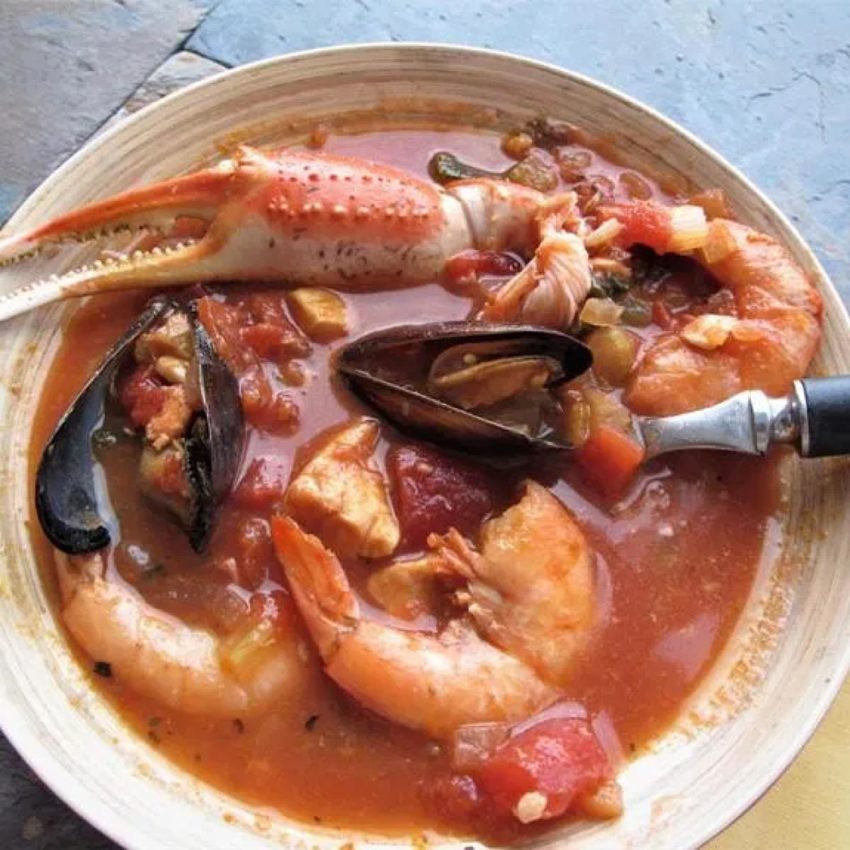
Jump to: Weight Loss? | Intermittent Fasting | Comparison to Other Diets | Key Foods | Recipes
This post may contain affiliate links. As an Amazon Associate, I also earn from qualifying purchases. You can read our disclosure information here–
How is it Different from a Regular Mediterranean Diet?
The traditional Mediterranean diet has been endorsed for heart health in many academic or research publications. Recently, and for the past several years, U.S. News & World Report has ranked it #1 for overall health.
This ranking was based upon it being nutrient-dense, safe, relatively easy to follow, protective against cardiovascular disease and diabetes, as well as effective for weight loss. Many studies have concluded the Mediterranean diet can help reduce the risk for metabolic issues (such as diabetes and high cholesterol), breast cancer, and memory issues such as dementia while promoting healthy heart, bones, and joints (as referenced in this CNN article).
Tip: The primary difference between a Pesco Mediterranean diet and the classic Mediterranean diet is the intermittent fasting component.
The emphasis on fish and seafood is the other key variant. These may seem like small differences, but they are important distinctions.
Pesco Mediterranean and Weight Loss
The classic Mediterranean diet has long been established as a healthy diet that “can be” effective for weight loss. It does not seem to result in quick weight loss, however, but if followed over the long term this type of lifestyle is very sustainable.
One problem with a sustainable weight loss program, however, is that it can result in boredom for many people.
The other main reason I believe the Pesco Mediterranean diet has not seen widespread results as a weight loss program is that it involves cooking or preparing your own food. Americans seem to have lost some of the art of cooking and preparing whole foods, as life became busy and processed food became abundant, inexpensive, and quick.
A smaller, but important reason that may be preventing acceptance of the Pesco Mediterranean diet is that good seafood can often be quite expensive.
The Role of Intermittent Fasting
Intermittent fasting (aka time-restricted eating) is essentially limiting the eating window of your day. The most frequently cited form of intermittent fasting related to weight loss is 16/8 (16 hours of daily fasting and an 8-hour eating window).
This typically means skipping breakfast, but some prefer to skip dinner instead. I have not found any research that shows a preference for the time of day of the eating window.
Tip: For weight loss benefits, an 18-6 intermittent fasting regime (18 hours of fasting to a 6-hour eating window) seems to be even more beneficial.
Of course, this makes sense from a calorie standpoint. The less time you eat in a day most often relates to fewer calories, given you are on a particular diet or lifestyle that doesn’t include an overload of sugar and processed food.
Fat Loss vs Weight Loss
Some studies have promoted intermittent fasting as a method to achieve “fat loss” rather than just “weight loss”, and I wholeheartedly agree with this concept.
The idea is that intermittent fasting promotes glucose metabolism. After a 12-hour overnight fast, insulin levels are typically low, and glycogen stores have been depleted. This means when you wake up and your body is looking for energy, you will mobilize fat for energy rather than glucose.
There are a range of documented health benefits to intermittent fasting (insulin sensitivity, lower blood pressure, etc.) that are relevant to people not trying to lose weight, but the weight loss benefit is meaningful to many people looking for a healthy lifestyle (reference is from the National Library of Medicine, National Center for Biotechnology Information NCBI).
Take Note! Caveat from the American College of Cardiology (ACC): “The evidence regarding time-restricted eating is mostly based on animal models and observational human studies. The most popular form of time-restricted eating involves eating two rather than three meals and compressing the calorie-consumption window”.
No head-to-head studies have been performed to assess the optimal time window.
Comparison of Different Vegetarian Diets to Health and Longevity
This is a quote from the authors of an American College of Cardiology (ACC) study comparing the health of popular diets:
“Humans are evolutionarily adapted to obtain calories and nutrients from both plant and animal food sources. Many people overconsume animal products, often processed meats high in saturated fats and chemical additives.
In contrast, while strict veganism has gained popularity for many reasons and has value in certain groups, it can cause nutritional deficiencies (vitamin B12, high-quality proteins, iron, zinc, omega-3 fatty acid, vitamin D, and calcium), and predispose to osteopenia, loss of muscle mass, and anemia.
This is not true of a lacto-ovo vegetarian diet, which allows no animal-based food except for eggs and dairy.
A 6-year study of 73,308 North American Adventists reported a decreased incidence of all-cause mortality when comparing vegetarians with nonvegetarians.
However, when the vegetarians were stratified into vegans, lacto-ovo vegetarians, pesco-vegetarians, and semi-vegetarians, the pesco-vegetarians had the lowest risks for all-cause mortality, cardiovascular disease (CVD) mortality, and mortality from other causes.”
My Personal Experience
I have personally followed low-carb, slow-carb, and keto diet plans and have seen sustainable weight loss (and fat loss) with all of them. I lost 30 pounds over 6 months and have kept the weight off for over 10 years now.
Concerning overall health parameters, they each have their pros and cons.
I believe the main problems with the currently popular low-carb approaches are:
- The exclusion of certain food groups. Elimination of an entire food group can result in nutritional deficiencies.
- Sustainability over the long-term. Keto, in particular, does not seem to be sustainable for many, many people over the long run.
- The high protein nature of many low-carb approaches involves a great amount of red meat daily. Much of the current research favors plant-based or pescatarian diets over diets heavy in red meat, particularly if the goal is “health”.
Key Foods for Pesco Mediterranean Diets
The Case for EVOO
Extra Virgin Olive Oil (EVOO) is the oil of choice in the classic Mediterranean diet, as well as the Pesco Mediterranean diet. EVOO is used throughout this diet for cooking vegetables, as a salad dressing, and in sautéing fish.
It is important to note, however, that olive oil quality is crucial, which can make it expensive. It is also important to note that EVOO has a low smoke point and can quickly turn rancid if used in high-heat cooking.
The reason EVOO is so crucial to the health aspects of a Mediterranean diet is it retains components of olives which are believed to underlie many of EVOO’s heart-healthy benefits (such as reduced LDL-C cholesterol and increased HDL-C cholesterol and a lower diabetes risk. (Source: American College of Cardiology).
There is quite a bit of information available on the large number of olive oil brands, and it is worthwhile reading the information to find the right oils.
Tip: A recommended 100% Extra Virgin Olive Oil (EVOO), highly rated by both home cooks and professional chefs, (see this article from Food and Wine). Corto Truly 100% Extra Virgin Olive Oil is produced in northern California by a family-owned business with origins in Lucca, Italy.

Nuts, Seeds and Legumes
Nuts:
Nuts are typically high in fat and calories and they have been the biggest challenge for me in losing weight on the Pesco Mediterranean diet because I do tend to go overboard. That is not to say they aren’t healthy, however!
Nuts and legumes are also two of the foods that are common to the diet of the five regions of the “Blue Zones”, a worldwide study that analyzed the criteria for healthy longevity.
Although this American College of Cardiology (ACC) study states that a generous intake of nuts and/or legumes does not promote weight gain because of increased satiety and incomplete digestion, I have not found that to be true anecdotally for me.
Nuts were also the main culprit in preventing weight loss not only for me personally, but also for many of my previous clients whom I coached as a diet and health coach.
No doubt nuts are healthy, however, and if you are choosing this type of lifestyle for health rather than weight loss, generous helpings of tree nuts can be beneficial.
Legumes:
Legumes can be a healthy protein substitute for red meat and processed meats, especially if you do not like to cook fish. Legumes are defined as members of the bean family. This family is large and diverse and contains over 16,000 species!
Consumption of legumes has been linked to improvements in blood glucose, cholesterol, blood pressure, and body weight. See the graphic of the variety of legumes below.
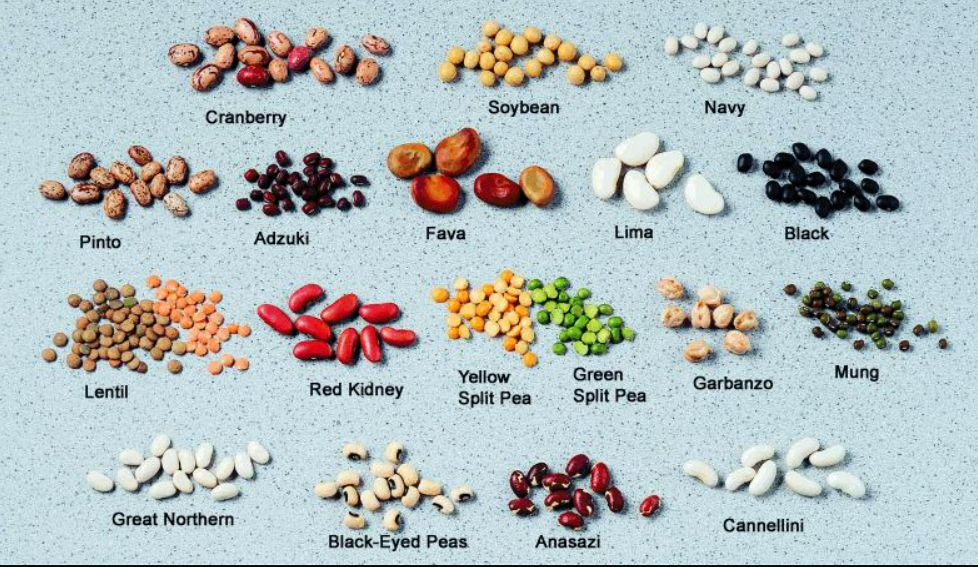
Seeds
Seeds are also important in low-carb diets of all kinds, as they are rich in:
- Protein
- Healthy fats (higher proportion of polyunsaturated fats)
- Fiber
- Minerals (such as magnesium, potassium, calcium, plant iron, and zinc)
- Vitamins B1, B2 and B3.
Oily seeds also contain antioxidants that stop the fats from going rancid too quickly. These antioxidants have several health benefits as well! You can get good combinations of oily seeds on Amazon or at your local grocery store.
My favorite seeds to add to salads, soups or even to plain Greek Yogurt include:
- Flaxseeds.
- Chia seeds.
- Pumpkin seeds.
- Sunflower seeds.
- Hemp seeds.
- Sesame seeds.
Dairy and Eggs
There doesn’t seem to be a clear consensus in the nutrition field on the benefits of dairy products to overall health.
They are allowed in the Pesco Mediterranean diet, with an emphasis on fermented versions of dairy such as yogurt and soft cheeses.
Tip: Eggs are allowed in the Pesco-Mediterranean diet; egg whites are unlimited and preferably no more than 5 yolks/week.
The Relevance of Whole Grains
In contrast to most of the popular low-carb diets, whole grains, such as barley, whole oats, rye, corn, buckwheat, brown rice, and quinoa, are an integral part of the traditional Mediterranean diet.
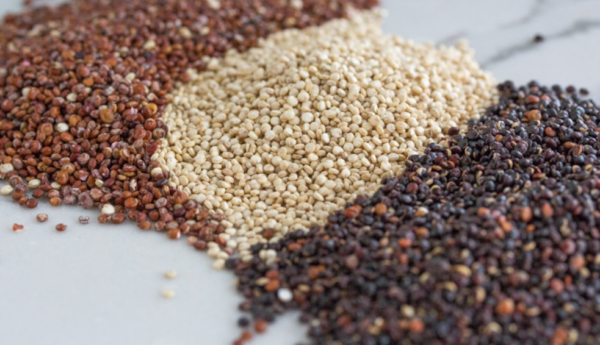
Most of the low-carb and keto diet approaches do not allow grains of any sort, based on causing an insulin response.
I have followed a low-carb and keto approach for many years now, so this idea of eating grains is anxiety-producing to me. Although I am now following the Pesco Mediterranean approach, I still try to be cautious with whole grains, keeping them to a minimum.
Even if the grains do not result in weight gain, there are many people today who must eat gluten-free. The inclusion of grains as an “allowed food” in the Pesco Mediterranean diet doesn’t mean it is a necessity by any means.
I would say the same for dairy if you have a problem with dairy. A great meal plan of fish, legumes, plant-based foods, and EVOO, accompanied by intermittent fasting is a perfectly sustainable (and delicious) lifestyle.
What about pasta?
The American College of Cardiology (ACC) explains pasta in the inclusion of grains like this:
“Pasta is an example of a starchy food that has a low glycemic index despite being a refined carbohydrate. In the context of a low glycemic index dietary pattern such as the Mediterranean diet, pasta does not adversely affect adiposity and may even help reduce body weight and there is no evidence that pasta promotes cardiometabolic risk factors.”
Beverages Compliant with a Pesco Mediterranean Diet
The standard for beverages on any weight loss or health lifestyle seems to be consistent across the board:
- Water, which can be flavored but not sweetened.
- Tea or coffee (unsweetened).
- Dry red wine daily: 6 ounces for women and 6-12 ounces for men, consumed with meals.
Pesco Mediterranean Recipes
As noted earlier, cooking fish can be intimidating to many people, particularly Americans. Here are a few simple fish dinner recipes that fit this diet and are quick to prepare:
- Cioppino (or Bouillabaisse or Fish Stew)
- Plum Sauce for Salmon or Fish Dinners
- Mediterranean Fish Veracruz
Take Note! This category of fish and seafood recipes gives you over 40 recipe options some which are low carb and some which are a Mediterranean style.
**Want more like this? Subscribe to our Sunday newsletter to get recipes, gardening guides and diet help. Let’s go from Inspiration to Done!
Online Diet/Health Coaching:
Although I am not currently taking clients for diet & health coaching, I was a coach for many years with the online service called coach.me. It is a great platform for all kinds of coaching – anything from specific diets, writing a blog, getting up early, or getting rid of that pesky procrastination.
There are some wonderful coaches and the testimonials will tell you what you need to know. Contact me at [email protected] to get a referral to some of the tested, experienced online coaches on Coach.me.

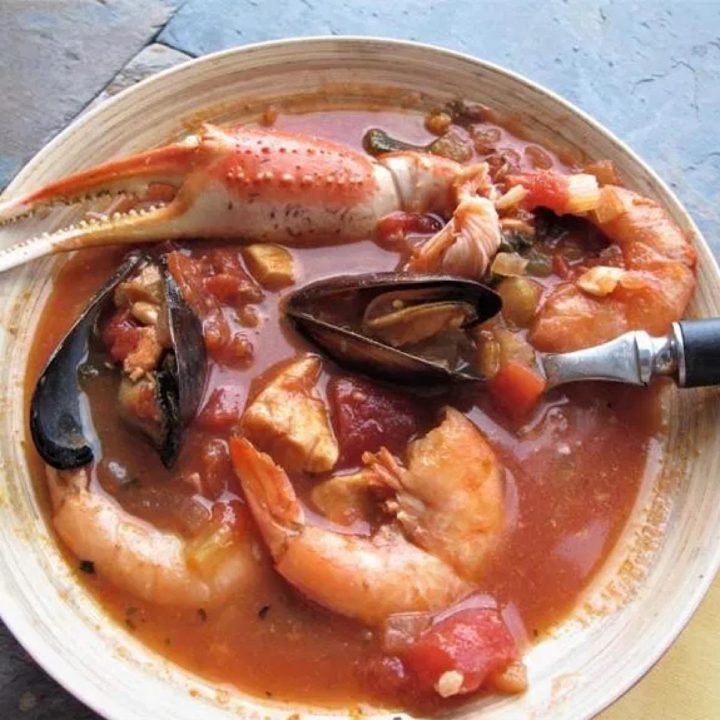

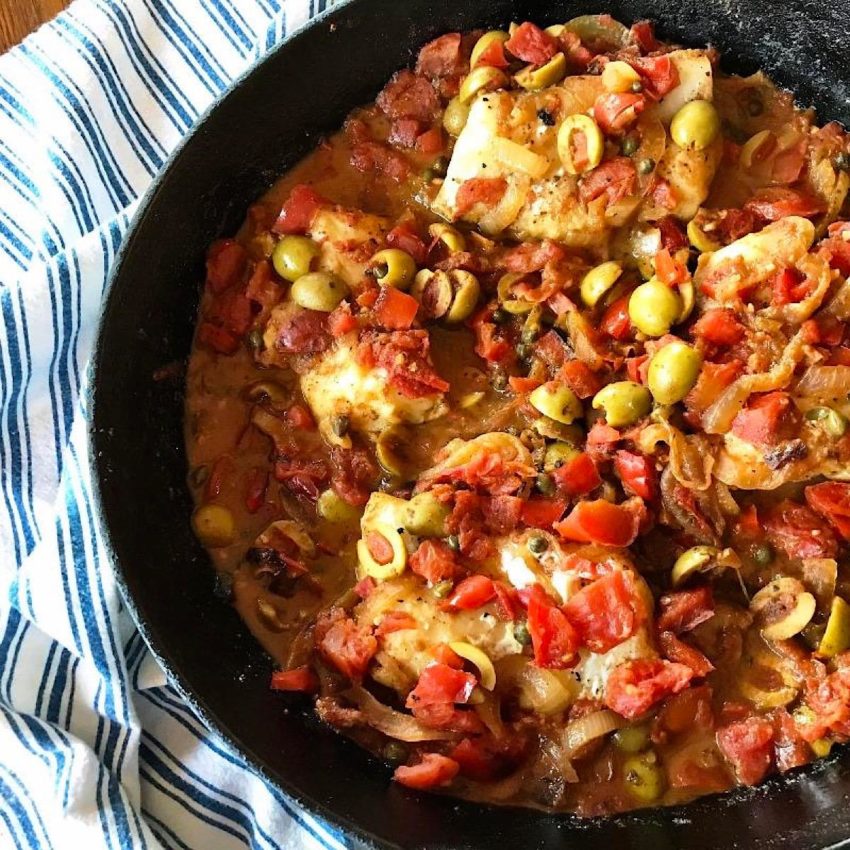
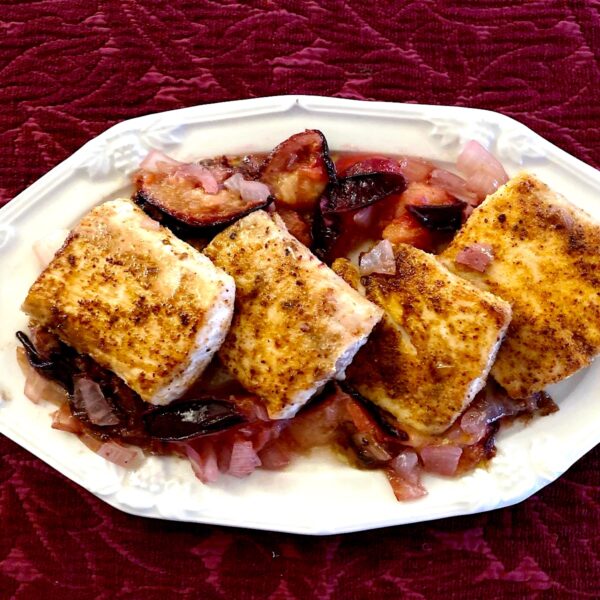

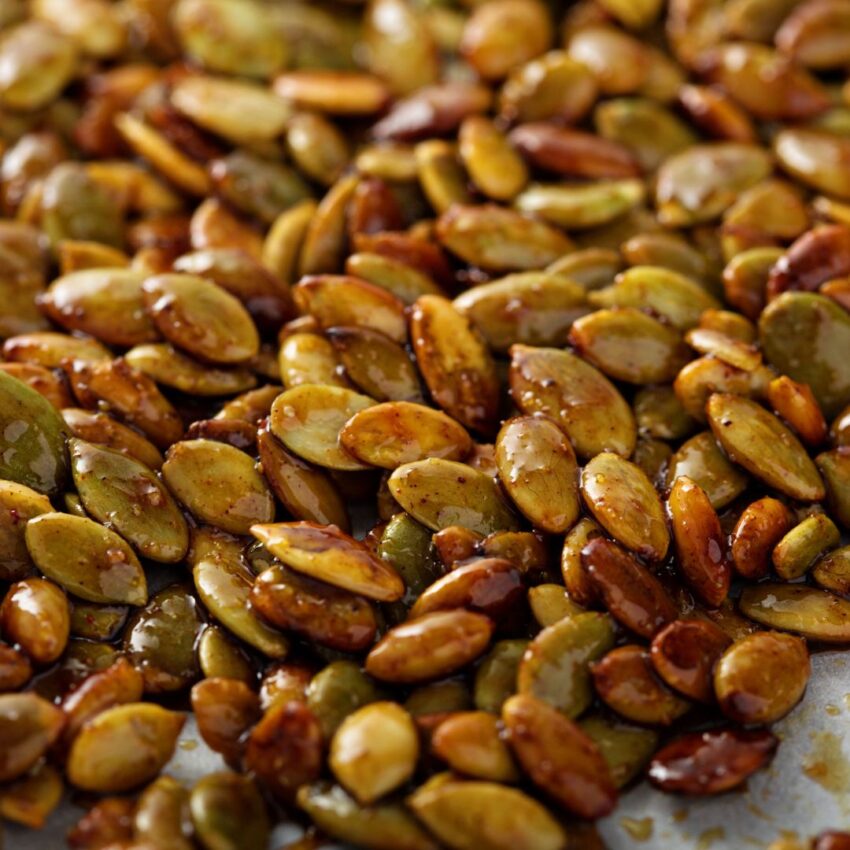

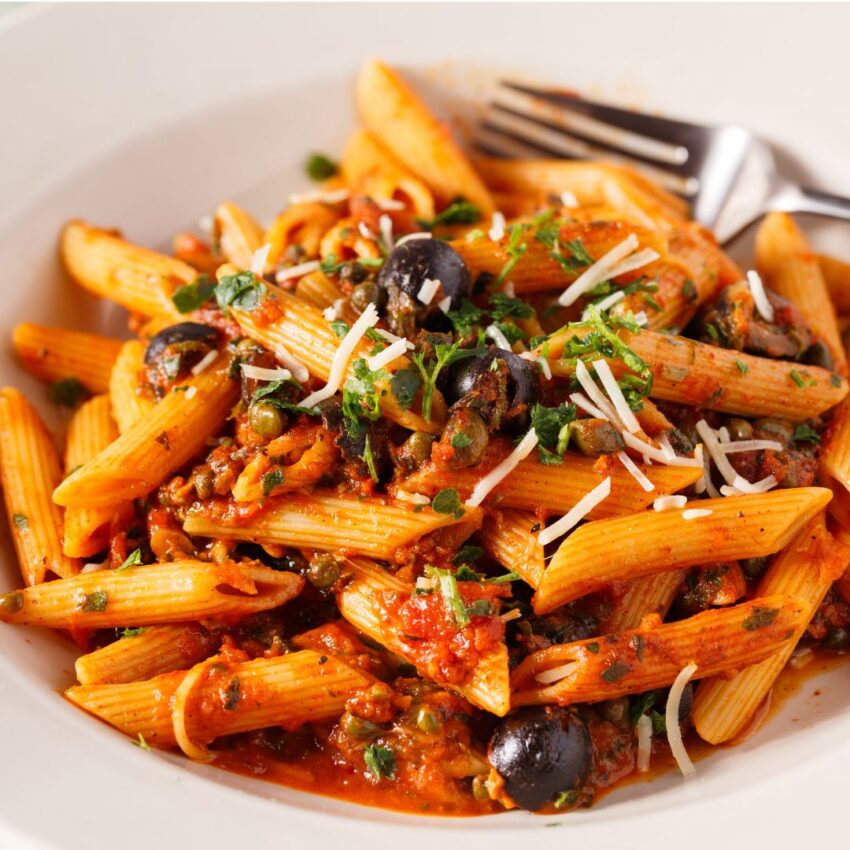


Question about the “unsweetened” drinks. Does this mean no sugar/honey/maple syrup etc. that have “whatever-ose” content or does it also include things like stevia and monkfruit that have no glycemic response? If it includes all sweeteners, can you provide info on why? Is it just because the taste of sweetener makes us want more sweet stuff? Drinking unsweetened tea is just a nonstarter so this concerns me. Thanks!
Hi Mary, thanks for the question/comment. The key with any diet if the goal is weight loss is to decrease sugar. Decreasing sugar (in its various “whtever-ose” forms -love that) doesn’t mean eliminatng sugar. If you can handle sugar substitutes like steva and monkfruit (some people get stomach issues) then yes, those are good substitutes for sweetening your iced tea, especially if you have it on a daily basis.
The Pesco Mediterranean diet is focused on health with the weight loss coming from avoiding processed foods and cutting down on sugar. Many of the foods recommended on Pesco Mediterranean have natural sugars and complex carbs.
What that means basically is if your goal is to lose a LOT of weight quickly, this diet isn’t for you. If your goal is to lose weight more gradually and sustain it over time, ths is a really good diet. Dieting is a very individual undertaking and I think finding a healthy lifestyle that leads to “sustainable” weight loss is the key.
If drinking unsweetened tea s a nonstarter for you but the rest of the diet is something you could sustain, then by all means keep your sweetened tea and avoid sugar elsewhere in the day.
One other note, I’m a big tea drinker and I’ve taken to drinking licorice tea. It’s naturally sweet.
If you are diabetic or need to lose a lot of weight, a keto or low carb diet would probably be better. But that would involve a really low sugar intake and no grains and not much fruit. My experience coaching has been that keto is effective at weight loss but not very sustainable over the long run.